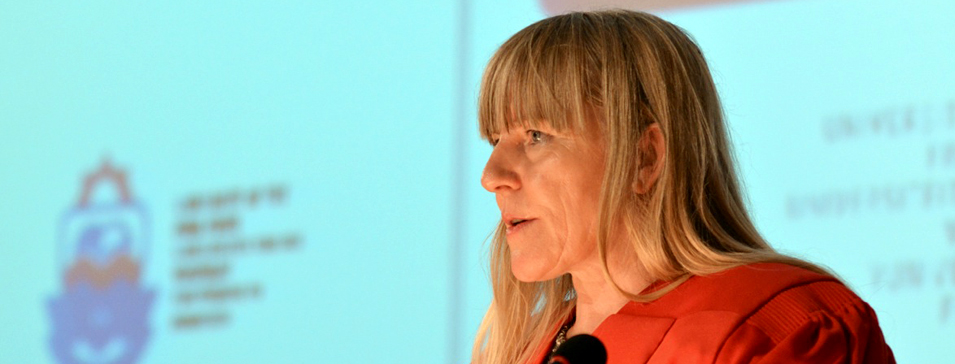Latest News Archive
Please select Category, Year, and then Month to display items
12 October 2020
|
Story Arina Engelbrecht
|
Photo Supplied
 Arina Engelbrecht from Organisational Development and Employee Well-being believes physical activity has a number of benefits for one’s health, including stress relief.
Arina Engelbrecht from Organisational Development and Employee Well-being believes physical activity has a number of benefits for one’s health, including stress relief.
Being physically active plays a big role in preventing the development of mental-health problems and in improving the quality of life of people experiencing mental-health problems.
Treatment for depression
Physical activity can be an alternative treatment for depression. It can be used as a stand-alone treatment or in combination with medication and/or psychological therapy. It promotes all kinds of changes in the brain, including neural growth, reduced inflammation, and new activity patterns are formed that promote feelings of calm and well-being. It releases endorphins – powerful chemicals in the brain that energise your spirit and make you feel good.
Physical activity can be very effective in relieving stress. Research in adults has found that physically active individuals tend to have lower stress levels compared to individuals who are less active. It also leads to improved sleep. When a person sleeps better and feels more rested, overall quality of life improves. They cope better with daily life stressors.
Reduce Alzheimer's risk
Regular physical activity can reduce your risk of developing Alzheimer's disease by up to 50%. It can also slow down further deterioration in those who have already started to develop cognitive problems. It stimulates the brain’s ability to maintain old connections as well as to make new ones.
A study asked people to rate their mood immediately after periods of physical activity (e.g. going for a walk/run, cycling, doing housework) and periods of inactivity (e.g. reading a book or watching television). Researchers found that participants felt more content, more awake, and calmer after being physically active compared to after periods of inactivity.
In conclusion, people who are physically active feel a sense of well-being, feel more energetic throughout the day, sleep better at night, have sharper memories, and feel more relaxed and positive about themselves and their lives.
“Being physically active not only changes your body, it changes your mind,
attitude, and your mood.” – Arina Engelbrecht
Prof Annie van den Oever envisions the future of film and visual media in her inaugural lecture
2014-02-07

The university formally welcomed Prof Annie van den Oever, an internationally-recognised film and media scholar, within its academic ranks. Her association with the UFS forms part of an exciting new postgraduate programme in film and visual media being created by the Faculty of the Humanities.
Prof Annie van den Oever delivered her inaugural lecture, “Foundational Questions for a Film and Visual Media Programme”, sharing her extensive knowledge in the field. The lecture attracted an international audience with people following the talk via live streaming from places such as Oslo, Berlin and London.
“Annie is quite a connected person through the film and visual media world,” Prof Lucius Botes, Dean of the Faculty of the Humanities, told the audience in the CR Swart Auditorium. He also referred to the fact that, under the auspices of Prof Van den Oever, two staff members from the faculty completed their master’s degrees at the University Groningen where she also teaches. “I am happy to announce that through Annie’s network we can invest in these young people.”
Prof Suzanne Human, Head of the Department History of Art, applauded the senior leadership for its vision to appoint Prof Van den Oever as extraordinary professor. “We have profoundly benefited and will still benefit from Annie’s obvious enjoyment in sharing her considerable experience and expertise in the design of a programme of film and media studies.”
The new postgraduate programme in film and visual media is being developed in partnership with the departments of Art History and Visual Culture Studies, Drama and Theatre Arts, English and the Department of Afrikaans, Dutch, German and French. The university aims to have the first film students enrol in 2015.